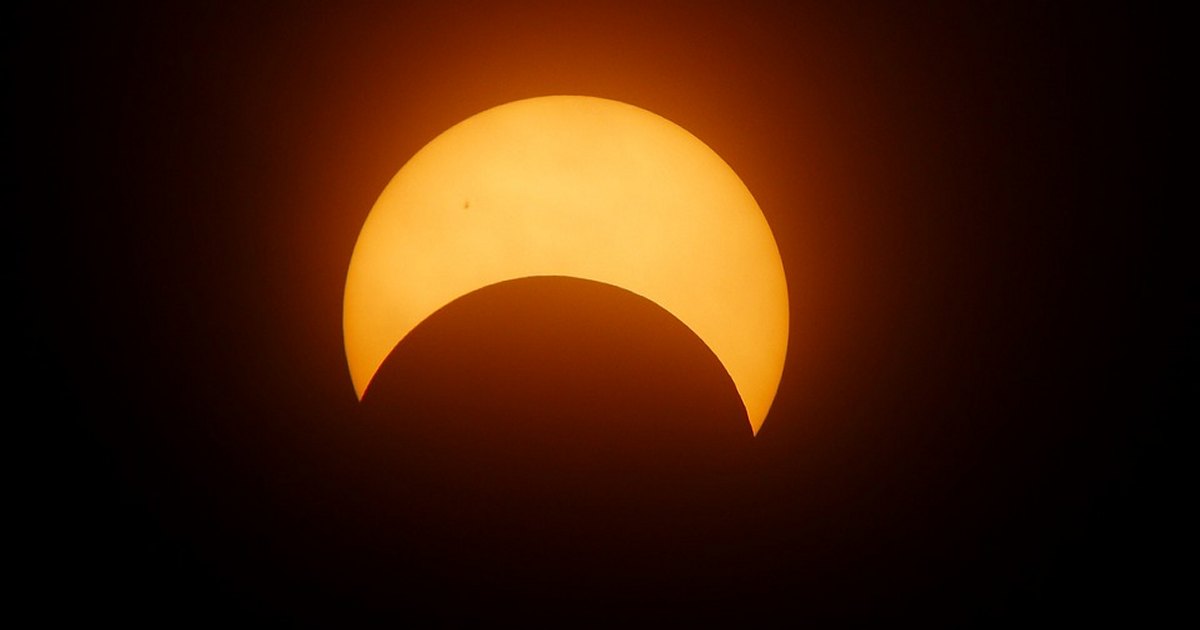
With solar power playing a bigger role in Australia’s energy mix, what impact will today’s eclipse have on our electricity systems?
A solar eclipse will occur across Australia today, kicking off in WA. It will be most visible in the Ningaloo region of Western Australia, and Exmouth is the only town within the ” line of totality” – meaning it will experience a total solar eclipse. The moon will completely cover the face of the sun, so things will get pretty dark for a minute (literally a minute) in Exmouth at 11:27am (AWST).
Elsewhere in WA and Australia, it won’t be so spectacular, but conditions will dim to varying degrees as the event unfolds across the country.
For example, the greater Perth area will experience a range of 60 to 80 per cent of the total solar eclipse. In South Australia and the eastern states, they’ll experience a 5 to 20 per cent reduction in solar irradiance from 12:35pm to 3:40pm.
Impact On The Electricity System “Manageable”
A mains electricity grid is a complex beast that needs to be continuously monitored to ensure conditions are just right for reliably delivering the power we need. The uptake of home solar power in Australia and other renewables has created some interesting challenges in maintaining these balances, and managing the impacts of a solar eclipse just adds to them.
The Australian Energy Market Operator (AEMO) manages electricity and gas systems and markets across Australia. The AEMO says today’s eclipse is expected to impact solar energy generation and electricity demand similar to “volatile and dense cloud movement”. That sounds a little ominous, but the AEMO says there will be a “manageable reduction” of solar energy generation.
The Operator has been engaging with key stakeholders within the industry in the lead-up to today to coordinate preparation activities and ensure everyone is on the same page. There have been increased operational checks and ongoing reviews of generation and demand forecasts.
“Our teams have run simulations and modelled the likely impact of the solar eclipse on the millions of rooftop solar PV systems and electricity demand, confirming there’s no elevated risk to electricity supply or power system security,” said AEMO Executive General Manager of Operations, Michael Gatt.
Forecast Electricity Demand Increase
With less solar energy generation occurring during the eclipse, this means other sources will be making up the shortfall. The AEMO forecasts reduced rooftop solar PV output in Western Australia during the eclipse could see a total demand increase ranging from 700 megawatts (MW) to 1,000 MW from 10am to 1pm. This is also subject to other weather conditions.
The following indicates what AEMO is forecasting in terms of maximum demand increase in five states, and when:
Perth: Eclipse time 10am – 1pm
WA demand increase: 950 MW at 11:15am
Adelaide: Eclipse time 12:25 – 2:35pm
South Australia demand increase: 150 MW at 2pm
Melbourne: Eclipse time 1:15 – 3pm
Victoria demand increase: 185 MW at 2pm
Sydney: Eclipse time 1:35 to 3:20pm
New South Wales demand increase: 140 MW at 2:30pm
Brisbane: Eclipse time 1:40 – 3:40pm
Queensland demand increase: 300 MW at 2:30pm
So, in terms of the impact on our electricity systems, effects of the eclipse should be minimal. And while this will be an interesting event to observe (particularly for folks in Western Australia), take care. Find out how to watch the eclipse and protect your eyes.

 RSS - Posts
RSS - Posts



Looking at:
https://opennem.org.au/energy/wem/?range=1d&interval=30m
You can see the Solar Power generation fell of a cliff at about 10:30.. Amazing it didn’t seem any darker visually.
I can not display the image but here are the Solar Reading
09:30 1111MW
10:00 1260MW
10:30 1168MW
11:00 764MW
11:30 656MW
12:00 1186MW
12:30 2503MW
Interestingly the Wind fell off at the same time! 407MW to 58 MW..Very unreliable,
GAS saved the day with a bit of help from COAL which did increase production.
The Rooftop solar reduced to 27% of requirements by 11:00 but back to 58% by 13:00.
Dave
Was surprised by how much my production dropped in Perth. Didn’t seem that dark during the peak of the eclipse but my production dropped from 5kw down to about 1.5kw. I was expecting a bit of a drop but not that much.